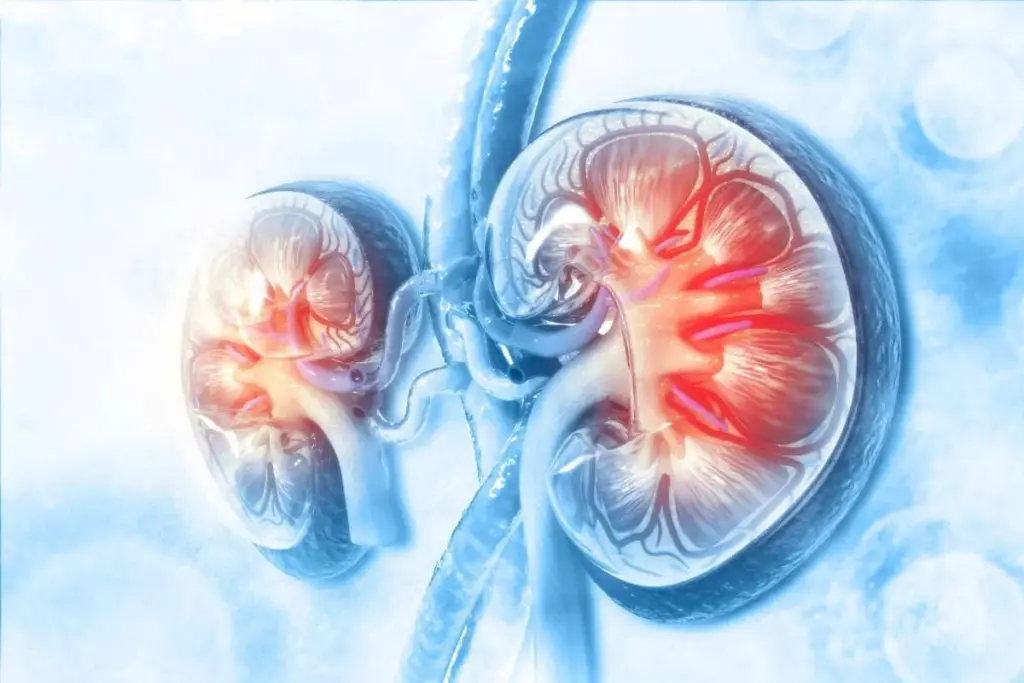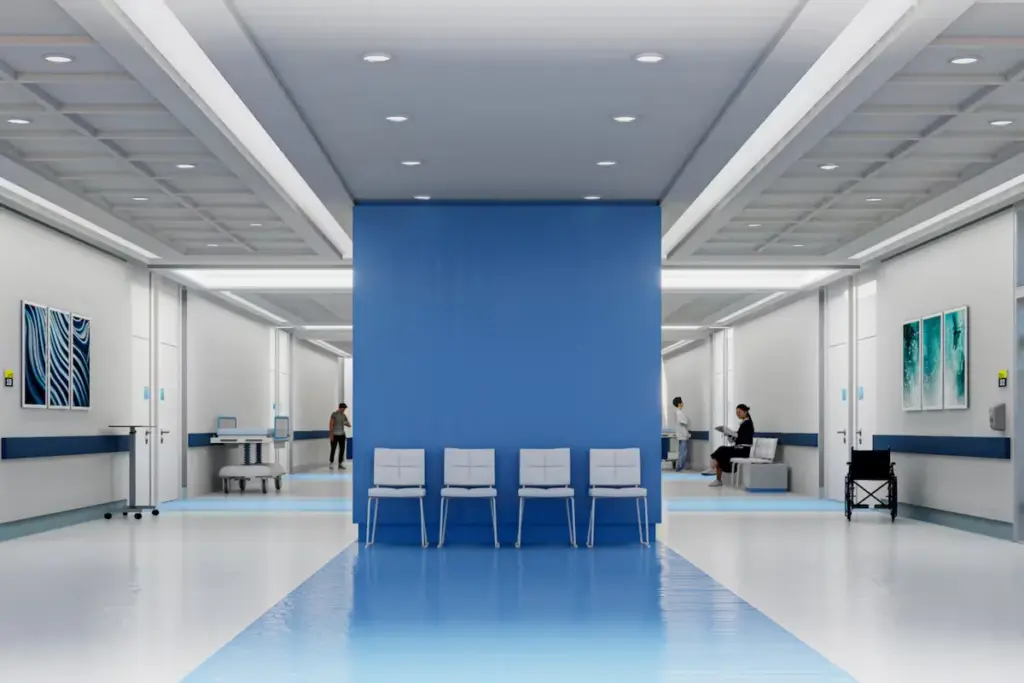
Abdominal emergencies like appendicitis, cholecystitis, and bowel obstruction are very serious gastro intestinal conditions. They need immediate surgery to save their¦
lives. Our hospital network knows that many stomach problems need surgery fast.
We aim to give top-notch healthcare to everyone, including international patients. Issues with the gastrointestinal system might need surgery. Knowing about diagnosis and treatment is key for good care.
Looking into common stomach problems that might need surgery helps us. This way, we can give patients the best chance for a good outcome after stomach surgery or other procedures.
Key Takeaways
- Abdominal emergencies like appendicitis and bowel obstruction require urgent surgery.
- Prompt identification of abdominal conditions is critical for effective treatment.
- At LivHospital, we offer full support for international patients.
- Understanding diagnosis and treatment options is vital for patient care.
- Surgical treatment may be necessary for various gastrointestinal conditions.
Common Abdominal Conditions Requiring Surgical Intervention

Some abdominal conditions need surgery right away to avoid more problems. Gastrointestinal (GI) surgery is key in treating these issues. Knowing the signs that mean surgery is needed and how tests help decide on surgery is important.
Warning Signs That Indicate Potential Surgical Emergencies
Spotting signs of possible surgery is key for quick action. Some signs include:
- Severe abdominal pain that doesn’t get better or gets worse
- Vomiting blood or having bloody stools
- Fever with stomach tenderness
- Stomach swelling or feeling bloated
These symptoms might mean serious problems that need surgery fast. GI stands for medical terms about the stomach and intestines. Knowing these terms helps doctors a lot.
The Role of Diagnostic Imaging in Surgical Decision-Making
Tests like CT scans, ultrasound, and MRI are very important. They help figure out if surgery is needed. These tests give important details about the problem.
For example, a CT scan can confirm appendicitis and help plan surgery. Ultrasound can spot gallstones and check the gallbladder. These tools help doctors decide if gastrointestinal surgery is needed.
- CT scans show detailed pictures of the abdomen.
- Ultrasound is good for checking the gallbladder and bile ducts.
- MRI gives clear images of soft tissues.
By using tests and doctors’ checks together, we can find and fix problems that need surgery. This helps patients get better faster.
Acute Inflammatory Conditions of the Gastro Intestinal Tract
Acute inflammatory conditions of the gastrointestinal tract are a big deal in medicine. They often need surgery right away. We’ll look at appendicitis and cholecystitis, and how surgery helps manage them.
Appendicitis: America’s Leading Cause of Emergency Abdominal Surgery
Appendicitis is a top reason for emergency stomach operation in the US. It happens when the appendix gets inflamed, usually because it’s blocked. If not treated quickly, it can burst and cause serious infection.
The signs of appendicitis include:
- Severe abdominal pain
- Nausea and vomiting
- Loss of appetite
- Fever
Cholecystitis and Gallstone Disease
Cholecystitis is when the gallbladder gets inflamed, often because of gallstones. Over 700,000 cholecystectomies are done in the US each year. Gallstones can block the cystic duct, causing inflammation and infection.
It’s important to understand the GI medical meaning of these conditions. Quick diagnosis and treatment can greatly improve results.
Obstructive Abdominal Conditions Requiring Surgical Management

Obstructive abdominal conditions are a big challenge in surgery. They often need quick action. If not treated fast, they can cause serious problems like bowel ischemia and perforation. We’ll look at two main issues: bowel obstruction and hernias, both needing surgery.
Bowel Obstruction: A Common Surgical Emergency
Bowel obstruction is a big deal in emergency surgeries, making up 15“30% of them. It can be caused by adhesions, hernias, or tumors, or by problems with bowel movement. Symptoms include pain, nausea, vomiting, and constipation.
To find out if someone has a bowel obstruction, we use tests like X-rays and CT scans. First, we try to fix it without surgery with rest and fluids. But often, surgery is needed to fix the blockage and find the cause.
Hernias: Types and Surgical Repair Options
Hernias are another common problem that needs surgery. They happen when an organ or tissue bulges through a weak spot in the belly wall. The most common types are inguinal, umbilical, and incisional hernias.
To fix hernias, we use surgery to avoid serious problems like incarceration and strangulation. We can choose between open surgery and laparoscopic surgery. Laparoscopic surgery is often better because it’s less invasive, leading to less pain and faster recovery.
Choosing the right surgery and acting fast are key to fixing hernias. We also think about the patient’s health and past surgeries to get the best results.
Key Considerations for Surgical Management:
- Prompt diagnosis and intervention to prevent complications
- Choice of surgical technique based on the type and severity of the condition
- Consideration of patient-specific factors to optimize outcomes
“The timely surgical management of obstructive abdominal conditions is critical to avoid severe complications and improve patient outcomes.”
Expert Opinion
Complex Abdominal Surgical Scenarios
Abdominal surgery covers many complex cases, from emergency surgeries to planned ones like cesarean sections. These cases need a lot of skill and knowledge of gastrointestinal anatomy and surgery methods. The complexity comes from the patient’s health, the surgery’s purpose, and possible complications.
Burst Abdomen: Causes, Prevention, and Management
A burst abdomen, or abdominal dehiscence, is a serious issue after surgery. It happens when the abdominal wound opens, possibly showing internal organs. This problem affects about 4.4% of emergency surgeries, making it a big worry for doctors.
Many things can cause a burst abdomen, like infections, bad suturing, and high pressure inside the belly. To prevent it, doctors focus on careful wound closure, the right sutures, and good post-op care to avoid complications.
Key prevention strategies include:
- Proper wound closure techniques
- Use of appropriate suture materials
- Postoperative monitoring for signs of wound complications
Cesarean Section: The Most Common Abdominal Surgery Worldwide
Cesarean section is the most common surgery worldwide, with millions done every year. It’s a lifesaver but comes with risks like infections, adhesions, and issues in future pregnancies.
Doctors decide on a cesarean for medical reasons, like fetal distress. But, the rising number of cesareans has raised questions about when it’s really needed.
How Obesity Impacts Abdominal Surgery Outcomes and Techniques
Obesity affects abdominal surgery a lot, changing both results and methods. Obese patients face more risks, like infections, longer surgeries, and blood clot problems.
Obesity changes surgery in several ways:
- More complex wound closure
- Need for special tools
- Changes in how patients are positioned and anesthetized
It’s key to understand these complex surgeries to give the best care. By tackling issues like burst abdomen, cesarean sections, and obesity, we can make surgeries better and help patients heal faster.
Conclusion: Advancements in Abdominal Surgery and Future Directions
Abdominal surgery is getting more complex. It now needs a team effort to care for patients. This is true for both gastrointestinal and stomach surgeries.
Our hospital’s system is dedicated to top-notch healthcare. We offer full support to international patients. We keep up with the latest in stomach surgery to give our patients the best care.
We’re always working to make surgery better and support our patients more. Our goal is to keep leading in gastrointestinal surgery. We aim to improve care for everyone who needs stomach surgery.
FAQ
What is gastrointestinal (GI) surgery?
What are some common GI surgical procedures?
What is the definition of gastrointestinal?
What are the warning signs that indicate a surgical emergency?
How does diagnostic imaging contribute to surgical decision-making?
What is the role of GI surgery in treating bowel obstruction?
How does obesity impact abdominal surgery outcomes and techniques?
What is a burst abdomen, and how is it managed?
What are the risks and benefits of GI surgery?
References
- National Center for Biotechnology Information. (2025, February 14). Acute abdomen – StatPearls. https://www.ncbi.nlm.nih.gov/books/NBK459328/








